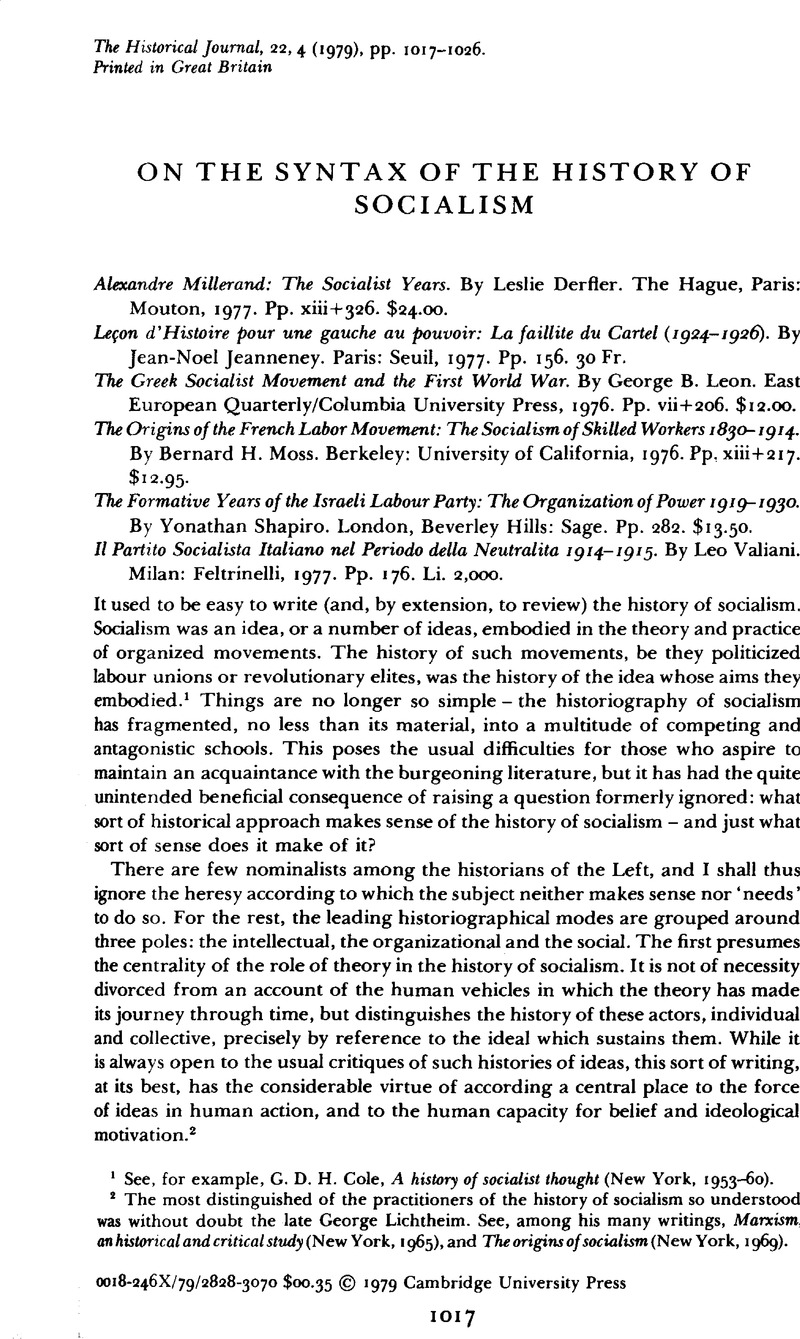No CrossRef data available.
Published online by Cambridge University Press: 11 February 2009

1 See, for example, Cole, G. D. H., A history of socialist thought (New York, 1953–1960)Google Scholar.
2 The most distinguished of the practitioners of the history of socialism so understood was without doubt the late George Lichtheim. See, among his many writings, Marxism, an historical and critical study (New York, 1965)Google Scholar, and The origins of socialism (New York, 1969)Google Scholar.
3 The leading exponent of such ‘de-politicized’ social histories of labour is Peter N. Stearns. See his Lives of labour (London, 1975)Google Scholar. I have considered Stearns, ' work in some detail in an article in History Workshop Journal (no. 7, 1979)Google Scholar.
4 The most obvious instances of the advantages of such an approach are the two leading studies of the communist parties in France and Italy respectively: Kriegel, Annie, Aux origines du communisme français (Paris, 1964)Google Scholar, and Spriano, Paulo, Storia del Partito communista italiano (Turin, 1967–1975)Google Scholar.
5 See Kaplan, Temma, Anarchists of Andalusia 1868–1903 (Princeton, N.J., 1977)Google Scholar.
6 The most recent and courageous attempt to handle the ‘grand’ questions is by Moore, Barrington (Injustice: The social bases of obedience and revolt (London, 1978))CrossRefGoogle Scholar. One's immediate reaction after reading the book is that these are indeed difficult matters.
7 It is odder still that Shapiro has nothing to say about the special circumstances in which eastern European jews of this generation acquired their understanding of socialism. The Russian context provides one basis for this understanding, but so does the situation of Poland at this time. On this, see Blit, Lucjan, The origins of Polish socialism 1878–1886 (Cambridge, 1971)Google Scholar, and Nettl, J. P., Rosa Luxemburg (2 vols, Oxford, 1966)Google Scholar.
8 Goldberg, Harvey, The life of Jean Jaurès (Madison, Wis., 1962)Google Scholar. As a model of its kind, see also the work by Nettl, already cited.
9 Jeanneney, Jean-Noel, François de Wendel en Republique. L'argent et le pouvoir 1914–1940 (Paris, 1976)Google Scholar.
10 It is his remarkable grasp of the complexities of this sort of mode of accounting for popular political behaviour that makes Maurice Agulhon one of France's leading practitioners of social history. See in particular his studies of the Var – La République au Village (Paris, 1970)Google Scholar, and Une ville ouvrière au temps du socialisme utopique: Toulon de 1815 à 1851 (Paris, 1970)Google Scholar.